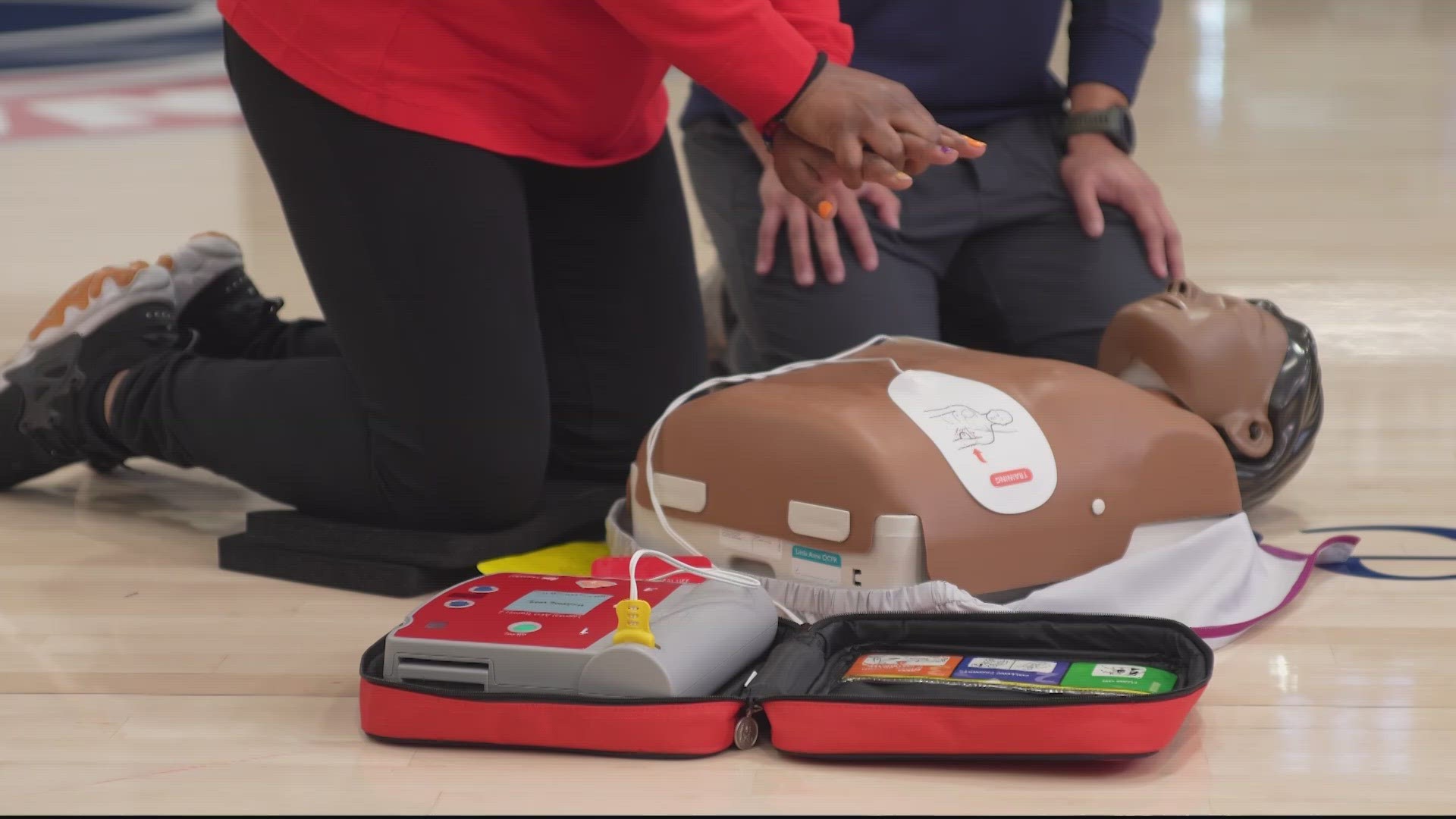WASHINGTON — During CPR-AED awareness week, MedStar Health is teaming up with local sports teams to educate people on how to use an AED, or automated external defibrillator, and give CPR.
The hospital system also wants to highlight the racial and gender disparities in who receives CPR outside of the hospital setting. According to Dr. David Gordon, a critical care physician with MedStar, women, Black, and Hispanic people are less likely to receive help from a bystander when experiencing cardiac arrest for a variety of reasons.
“People don’t understand when to do CPR, so there are huge delays and all those delays in doing CPR impact people’s outcomes and they don’t feel confident in doing CPR. To get the education, to do CPR you need to go to a long class you need to find that class someone has to have that class that takes time money energy and those resources aren’t always available to everyone,” Gordan said.
350,000 people go into cardiac arrest outside of the hospital every year, and D.C. has some of the worst rates in the country when it comes to people jumping in to help, according to MedStar.
“Specifically in our city, only 29% of people get bystander CPR [training]. Even less, 6%, will get the use of an AED, and those are some of the lowest numbers in the country,” Gordon said.
MedStar is teaming up with the Washington Capitols, Mystics, Wizards, and Georgetown’s women's soccer team to provide free and easy-to-understand videos that guide you through how to save a person’s life in case of an emergency and to make sure everyone no matter your gender or race has access to this information.
Gordon says there’s no need for mouth to mouth anymore, and you don’t have to be certified to start performing CPR. Doctors are hoping this means more people will feel comfortable doing so.
“If you just get on the chest and start doing compressions you can make a huge difference to what happen we really wanted to do something to tackle those issues and bring awareness to this and overcome those barriers so that people can get this really important intervention because it can be the difference between walking out of the hospital and dying,” Gordon said.
Legal worries also prevent some people from jumping in to help but Gordon says all 50 states and D.C. have good Samaritan laws in place that protect bystanders who are trying to help people in distress from being sued.

